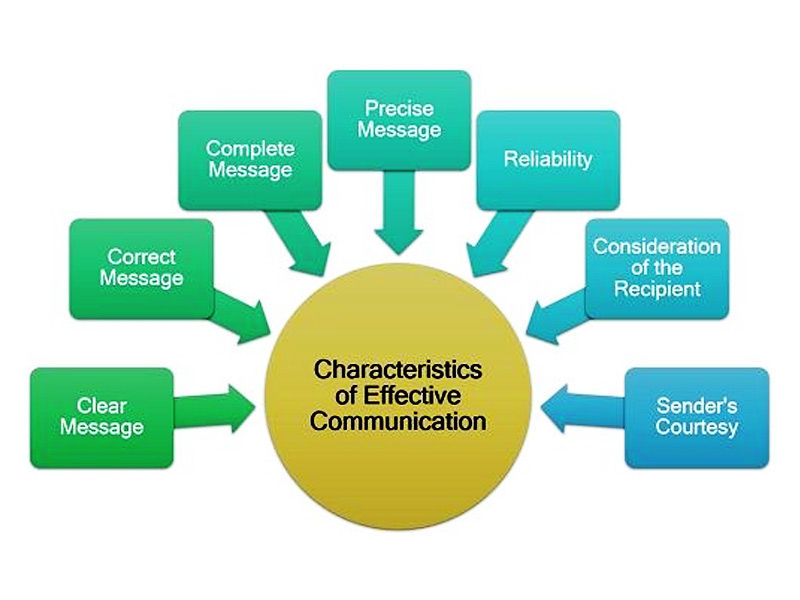For effective team management, you must possess several crucial team management attributes and capabilities. It might be tough to rouse your staff to work toward similar goals and perform at their best without them, which may be terrible for both your firm and your career.
Whether you’re an aspiring manager, a freshly appointed leader with little experience, or a seasoned executive struggling in team management, acquiring these vital abilities will be key to your success.
1. Effective communication

As a manager, your job is to assist your team members in completing duties efficiently, consistently, and aligned with the company’s broader strategic goals. To do so, you must clearly describe those strategic goals, as well as the precise activities and processes that will be required of your team to achieve them.
By being a more effective communicator, you will eliminate misunderstandings on your team and guarantee that everyone is on the same page and working toward the same goals.
2. Functional Skills
It’s difficult to respect management that can’t get things done. Someone who can’t “do” is an issue; it’s like having a ship captain who never learned to sail.
Suppose a leader lacks the skillset required to understand the sector and make things happen. In that case, they are unlikely to be a successful leader. This does not suggest that leaders must get their hands dirty; rather, they must properly delegate and develop timetables to ensure that goals are reached.
How to obtain it: Take a leadership and management class or other courses focusing on your lack of functional abilities.
3. Organizing

In addition to the daily activities that your team members undertake, you may be in charge of budgets and project timeframes. Keeping track of so many moving parts and making necessary adjustments along the way necessitates a high level of organization.
4. Self-assurance
You’re the boss, so you can’t let your employees take advantage of you. Confidence is a learned talent, not a personality attribute. Confidence stems from a thorough understanding of oneself. You can use your strengths to your advantage if you understand them. When it comes to your flaws, you can be open with your team and seek assistance to progress.
How to obtain it: Take a personality test, such as the Myers-Briggs or the DISC assessments. These may assist you in objectively understanding your strengths and flaws. It’s also a good idea to venture outside of your comfort zone. Take an improv class if you’re a shy person. If you’re a chatterbox, try meditating.
Also read, Human Resource Management fundamentals, Every HR Must Know
5. Delegation Capability

Although it may be tempting to micromanage individuals in your team, doing so can damage growth.
A skilled manager understands how to distribute tasks to others. This entails determining who is most qualified to execute a specific activity. It also entails ensuring that employees have the necessary resources to succeed and feel empowered to make their own decisions.
6. Objectivity/Fairness
Nothing aggravates employees more than obvious partiality. Sure, you’ll like some people on your team more than others, but revealing your actual feelings is poison for a team that has to work together. Favoritism is childish, and it can contaminate a team.
How to obtain it: If you truly prefer some team members over others, you must set boundaries to maintain your professionalism. Inviting everyone to lunch is a good idea. As a manager, you must create professional relations and friends, not BFFs.
7. Transparency
Emotional intelligence and good communication go in hand with openness. It’s critical that your team members feel comfortable contacting you with questions or concerns or when they need clarification on what’s required of them. If your employees don’t believe they can come out to you, there’s a chance that problems or concerns may go unresolved before it’s too late to fix them.
8. Solving Issues
Every manager encounters issues, no matter how well prepared, structured, or established a project or procedure is. This could manifest as a missed deadline or milestone. It could be a budgetary issue. It could be caused by an unanticipated breakdown in the supply chain.
Managers must be skilled problem solvers in any scenario. Anyone tasked with managing a team must evaluate a situation, think critically about alternative solutions, and craft a response.
9. Feedback

Employees may lose sight of how their work affects the wider picture as they churn through their to-do lists, heads down on the day-to-day. It is the manager’s role to reorient the focus on long-term goals. Employees should be encouraged to perform more of what they do well while simultaneously being guided to develop in areas where they may be falling behind.
Concentrate on the action rather than the actor. Even good feedback can elicit emotions that interfere with task performance. Rather than emphasizing how the employee did something wrong, try to remove the distracting, emotive parts of your criticism by simply discussing what happened.
Make recommendations and provide direction. Suppose you can identify areas for staff improvement. In that case, you’re probably also in a position to supply the information required to effect good change. A recommendation alleviates negative feelings by letting employees know they have a partner on their journey of change.
Make it a two-way street. Inquire about how employees feel about the news. Are they surprised or irritated? Everyone involved in the feedback should, ideally, leave the meeting feeling joyful and positive.

























